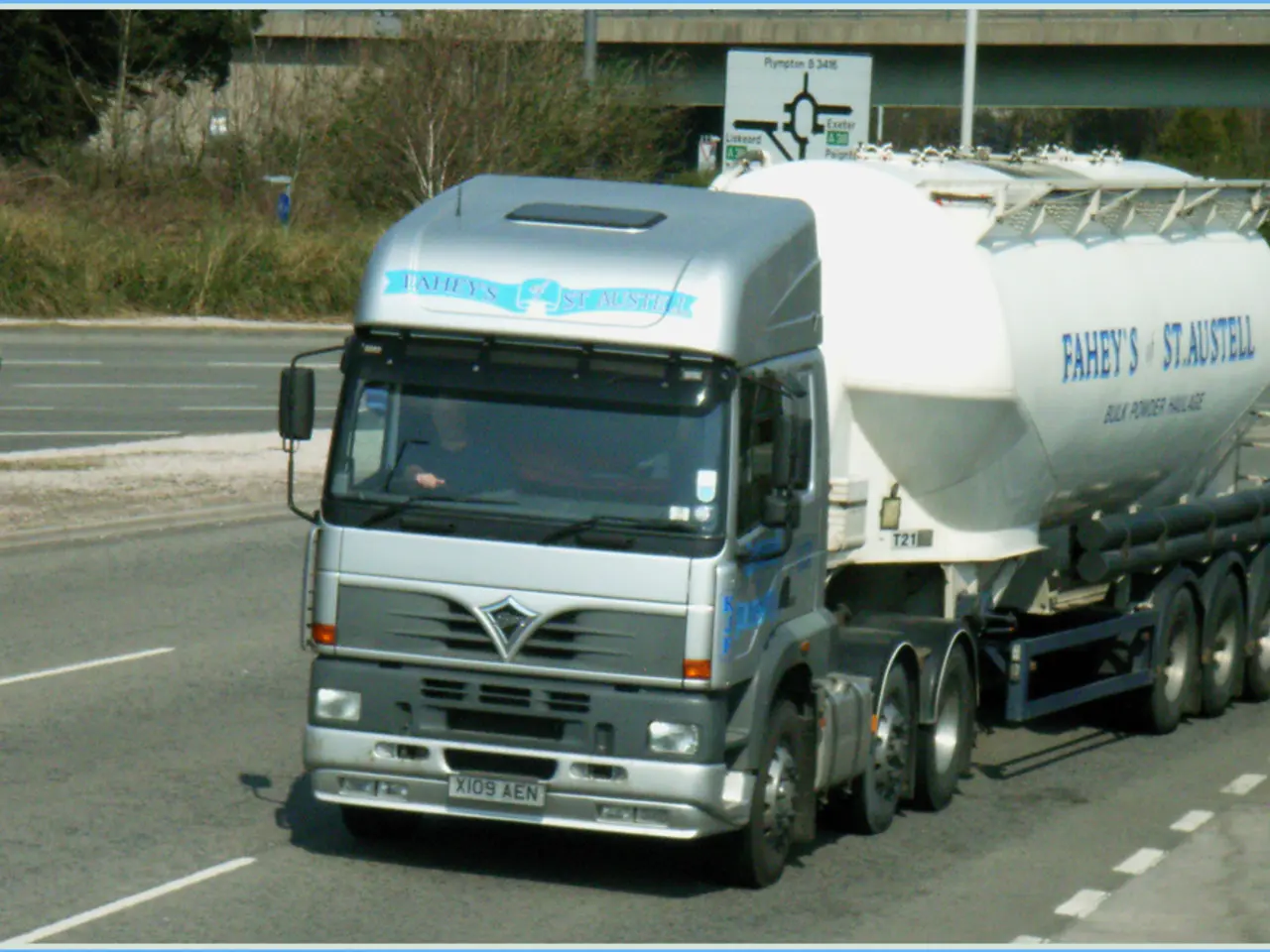Two Moers-based truck drivers, both who have been banned from driving, decided to illegally collaborate by one picking up the other. Their unroadworthy vehicles were eventually intercepted by the police.
On Tuesday, February 4, 2025, at 11:30 AM, a Bulgarian truck was stopped by the highway police. The driver of the truck, a 55-year-old Macedonian national, was found to be operating the truck without the necessary licenses.
The incident occurred on February 4, 2025, and the truck was found to have numerous safety defects. The brake pressure container of the truck was temporarily secured with a lashing strap, and there was a brake issue on the rear axle, a steering defect, and an air suspension bag nearing bursting. The truck's condition was found to have serious safety hazards and makeshift repairs.
The Macedonian driver was not the original driver of the truck. A replacement driver, a 58-year-old Macedonian, was also in the truck. However, he too lacked a valid driver's license and professional driver qualification. The second Macedonian driver was also prohibited from continuing his journey, and his company was informed that the tractor unit needed to be towed away.
The company was asked to send a replacement driver and a replacement truck for the trailer. The replacement driver, who was also a Macedonian national, was also found to lack the required driver's license and professional driver qualification.
The Macedonian driver's illegal employment highlights the ongoing challenges in enforcing EU regulations for third-country drivers operating EU-registered trucks. According to EU Directive (EU) 2022/2561, which came into force since January 2023, all professional drivers, including those from third countries, must complete mandatory Driver Qualification Card (DQC) periodic training of 35 hours every five years. This ensures that all drivers are adequately trained and maintain their professional competence.
The EU continues adapting policies to attract legal third-country drivers and combat illegal employment through regulatory enforcement and social dialogue. Strict enforcement of driver qualification requirements, ensuring drivers possess valid DQCs and have undergone the required periodic training, is crucial in tackling illegal employment. Policy efforts to regulate the hiring and permit procedures for non-EU drivers, as well as coordination between EU transport authorities and social partners to promote legal employment practices and social cohesion within the sector, are also being developed.
Several reports and administrative offenses were written in relation to these incidents. The truck's safety defects and the drivers' illegal employment status underscore the need for stricter enforcement of EU regulations to ensure the safety of road users and the integrity of the EU transport sector.
[1] European Commission. (2022). EU Directive (EU) 2022/2561 on the harmonisation of certain aspects of the qualification and training of professional drivers of vehicles and amending Regulation (EC) No 561/2006. https://ec.europa.eu/transport/modes/road/policy/professional-drivers_en
[2] European Commission. (2022). Action plan on the mobility of third-country workers in the transport sector. https://ec.europa.eu/transport/sites/transport/files/basic-pages/documents/action-plan-on-the-mobility-of-third-country-workers-in-the-transport-sector_en.pdf
- The ongoing challenges in enforcing EU regulations for third-country drivers operating EU-registered trucks were highlighted by the incident involving a Bulgarian truck and two Macedonian drivers on February 4, 2025.
- The European Commission is developing policies to attract legal third-country drivers and combat illegal employment, such as stricter enforcement of driver qualification requirements and coordination between EU transport authorities.
- The Macedonian drivers' lack of valid Driver Qualification Cards (DQCs) and failure to complete mandatory periodic training as required by EU Directive (EU) 2022/2561 highlights the importance of training and qualification for professional drivers in the transportation industry.




